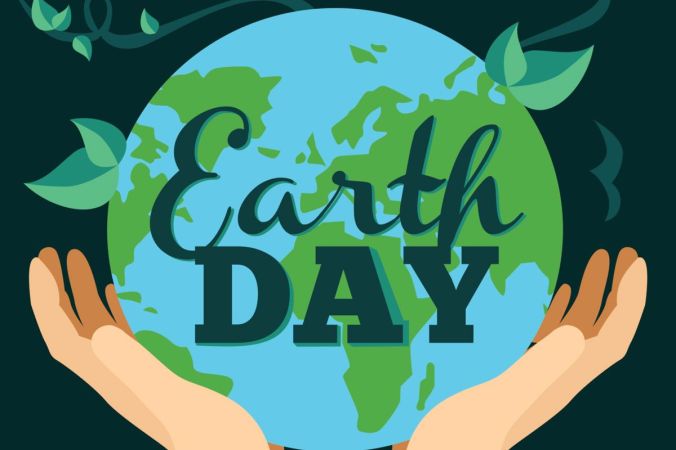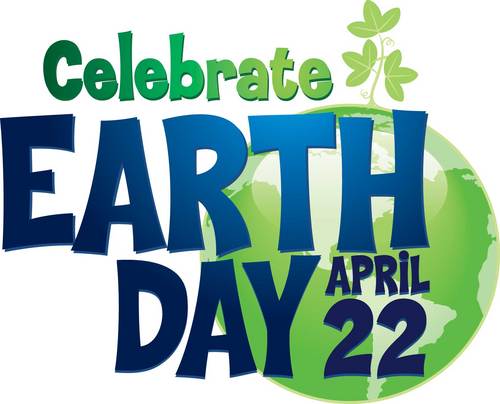03.15.2018
0600

Earth Day is an annual event celebrated on April 22. Worldwide, various events are held to demonstrate support for environmental protection. First celebrated in 1970, Earth Day events in more than 193 countries are now coordinated globally by the Earth Day Network.
This year, in the celebration of Earth Day, I thought I’d walk through my process of how to do a plastic audit in your home. But first, let’s take a look at the dangers of plastic and why it is not as recyclable as we are lead to believe.
EDUCATE YOURSELF ON PLASTICS
- What do you know about plastics? Although it is one of the most common packaging material used worldwide, it ends up in our landfill and our oceans. It eventually makes its way back to us through the foods we consume. There are also a lot of facts that are not widely known, here are some facts from the Plastic Pollution Coalition.
- Although it was considered one of the breakthrough materials discovered in 1907, only now are we realizing the damaging consequences of using this material so rapidly. How is it harmful?
- There is a huge misconception that all plastics can be recycled, however, that is not the case. Microplastics are small plastic particles in the environment. They come from a variety of sources, including cosmetics, clothing, and industrial processes.Two classifications of microplastics currently exist: primary microplastics are manufactured and are a direct result of human material and product use, and secondary microplastics are microscopic plastic fragments derived from the breakdown of larger plastic debris like the macroscopic parts that make up the bulk of the Great Pacific Garbage Patch. Both types are recognized to persist in the environment at high levels, particularly in aquatic and marine ecosystems.Because plastics do not break down for many years, they can be ingested and incorporated into and accumulated in the bodies and tissues of many organisms. The entire cycle and movement of microplastics in the environment is not yet known, but research is currently underway to investigate this issue. Here is more information from the National Ocean Service, What are microplastics?
- Why is recycling not effective? Learn about the different types of plastics
HOW TO TAKE ACTION TO REDUCE PLASTIC IN YOUR HOME
- What plastics can you REDUCE or better yet, REFUSE in your home? Track the amount of plastic used in different rooms/areas of your home by using the Daily And Monthly Plastic Pollution Chart (this chart is a template, feel free to customize it)
- Keep track of items that are contained in plastic by going through areas such as your: (add or take out any items that are missing or not applicable in the chart)
- Kitchen
- Bathroom
- Bedroom
- Home interior
- Home exterior
- Home etc.
- Slowly go through and keep track of each item on a daily basis or monthly basis
- Keep track of items that are contained in plastic by going through areas such as your: (add or take out any items that are missing or not applicable in the chart)
- After charting each item, plan how to avoid purchasing plastics by using the Plastic Pollution Audit Chart. What actions will you take to reduce the amount of plastic being brought into the home? Can you refuse the plastic packaged product by finding an alternative in a non-packaged form? Or would reducing the amount taken in be a better step for you? Maybe consider investing in a sustainable, resuseable product, so you eliminate the single use plastic product.
- If you choose to keep track of your plastic use on a monthly basis, you can audit each month by recording how much plastic you use and compare your yearly results using the Plastic Pollution Tracker.
SOME OTHER ACTIVITIES TO CELEBRATE EARTH DAY
- Around your home
- Change out all of your light bulbs to energy efficient CFL or LED light bulbs. The energy savings of cooler-burning bulbs, including CFL and LED, can have a significant impact on your utility bills and on making your home greener. An Energy Star light bulb replaces about six incandescent light bulbs because it lasts six times longer than the average light bulb.
- Change out your dangerous household cleaners with safer versions or make your own from vinegar/apple cider vinegar and water. Vinegar is a mild acid, which makes it a great multi-purpose cleaner for around the house. As a household cleaner, vinegar can be used to do anything from removing stains, to unclogging drains, to disinfecting, to deodorizing, and it can even be used to remove stickers. You can use it undiluted, combined with baking soda, or as an ingredient in a homemade household cleaner, and every room in your house can benefit from vinegar in some way. Check out 45 Uses For Vinegar.
- If you have the option of drinking tap water, switch to tap water or buy a attachment filter if needed.
- Stop catalogs and junk mail by signing up with Data and Marketing Association
- Opt out of credit card solicitations with Opt Out PreScreen
- Pack your car with reusable grocery bags so you won’t forget them on the next shopping trip
- Watch environmental documentaries to learn more about what has been researched and discovered through these films. Here is a list of some movies I found on Youtube in which you can watch for free.
- Home (2009 film)
- A Fragile World (Climate Change). Full Documentary
- Plastic: the Real Sea Monster (Full Environmental Documentary) I Spark
- China’s Wealth, Growth, and Environmental Nightmare (full Documentary)
- Zero Waste in Business: Documentary on Business and Environmental Waste (Full Documentary)
- A World Without Water (Environmental Catastrophe Documentary)
- The World in 2050 [The Real Future of Earth] – Full BBC Documentary 2018
- The Antarctica Challenge: A Global Warning
- Years of Living Dangerously Premiere Full Episode
- Plasticized – Feature Documentary Film
- With your community
- Bike or take public transportation instead of driving. Instead of driving everywhere, try taking public transportation, biking or even walking to places.
- Schedule a visit your local recycling center and tour the facilities to understand where your trash goes and how it gets sorted. It sounds strange but every piece of trash we throw away has a different route towards recycling or on its way to the landfill. Each county and each state has different recycling processes and so learning about your local recycling process is always helpful. You’ll be more informed and more aware of what REALLY happens when you recycle your trash.
- Join a local park, river or beach clean up.
- Plant a tree, herb garden, or even flowers!
- Check out your local city’s or county’s Earth Day activities
Earth Day will be celebrated on April 22, 2018 this year, so you still have over a month to decide what you want to do! Check out the Earth Day Network to find out more information. They have an extensive website that has a list of campaigns and activities for participants.
In the honor of Earth Day, check out some of these blog posts from other fellow bloggers:
- Ever Change Productions – How To Compost In An Apartment
- Curbside Overhaul – How To Repurpose
- Paw And Pines – Pet Friendly Essential Oils For Cleaning
- Little Sprouts Learning Garden – Quick And Easy Dinner Ideas- Meatless Meals
- Design Life Hacks – Earth Day
